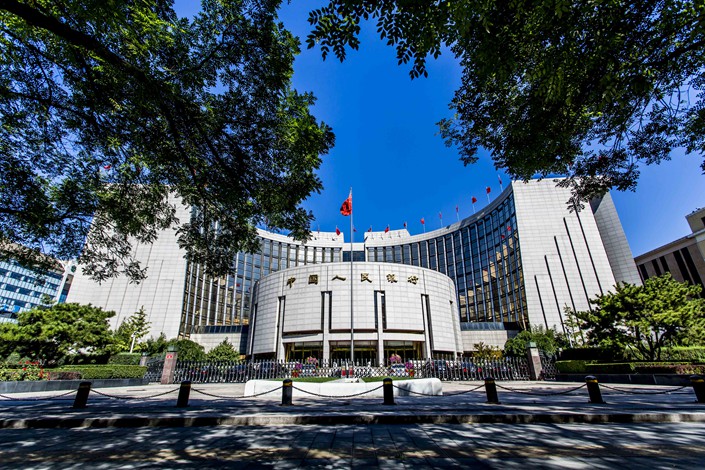Quick Take: PBOC Adviser Says Regulators Will Avoid Excessive Deleveraging

Ma Jun, a member of the central bank’s monetary policy committee, indicated that policymakers may be shifting their approach to implementing the government’s campaign to cut debt in the Chinese economy.
Ma, previously the head of the research bureau at the People’s Bank of China (PBOC), said financial watchdogs would not take a “one-size-fits-all” approach to deleveraging that could involve the excessive use of measures to reduce leverage at the aggregate level.
“In future, regulators will pay more attention to structural deleveraging,” Ma was quoted as saying in a statement released by the central bank to the media on Tuesday after the first meeting of the Financial Stability and Development Committee (FSDC), the new super-regulator set up last year to formulate policies to reduce financial risk and coordinate the work of the various financial watchdogs.
“Compared with the previous system consisting of the central bank and three commissions (banking, securities and insurance), the FSDC has greater authority, a much stronger ability to coordinate and more comprehensive participation,” said Ma, who is now an academic at Tsinghua University. “This will help avoid the problems of different regulatory agencies acting separately and of regulatory overlap that could lead to excessive liquidity tightening or market panic.”
Ma’s comments offer further signals that the tone and focus of the government’s deleveraging campaign may be shifting to a less severe phase as economic growth slows and trade tensions with the U.S. mount. Concerns about the outlook have pushed China’s stock markets into bear market territory and the yuan this week declined to a 10-month low against the U.S. dollar.
Last month, the China Banking and Insurance Regulatory Commission, a new watchdog formed this year from the merger of two previously separate regulators, said that the financial deleveraging campaign must take into account what the market can tolerate, prompting some analysts to expect a relaxation in the deleveraging initiatives.
Contact reporter Liu Xiao (liuxiao@caixin.com)

- 1Cover Story: China Carves Out a Narrow Path for Offshore Asset Tokenization
- 2Drownings Shake Chinese Enthusiasm for Travel to Russia
- 3Over Half of China’s Provinces Cut Revenue Targets
- 4Li Ka-Shing’s Port Empire Hit by Forced Takeover Amid Panama Legal Dispute
- 5In Depth: China’s Mutual Fund Industry Faces Overhaul After a Banner 2025
- 1Power To The People: Pintec Serves A Booming Consumer Class
- 2Largest hotel group in Europe accepts UnionPay
- 3UnionPay mobile QuickPass debuts in Hong Kong
- 4UnionPay International launches premium catering privilege U Dining Collection
- 5UnionPay International’s U Plan has covered over 1600 stores overseas





